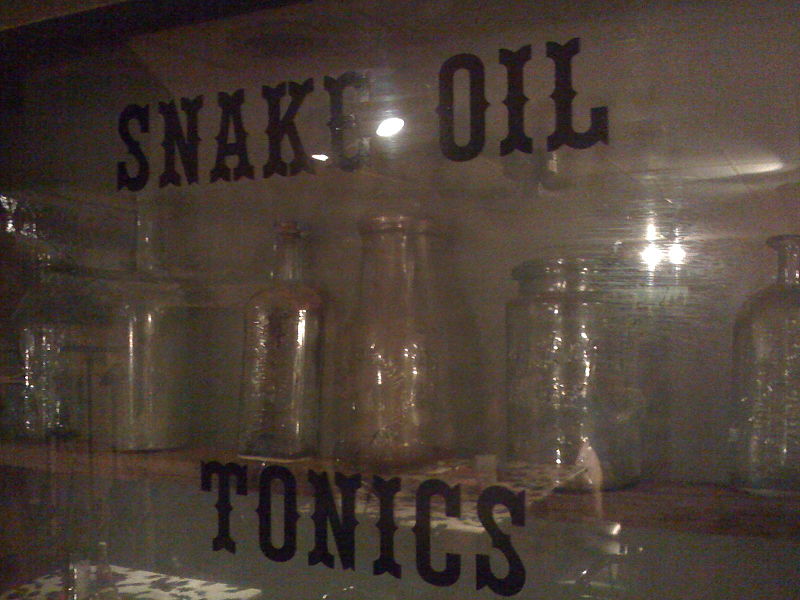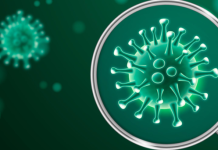
You may have read my previous article, where I discussed how vaccines are the most natural and effective form of disease prevention. On the other hand, homeopathic treatments are not effective, arrogantly defy the laws of nature, and have no support from objective scientific testing.
Yet, surprisingly, the principles behind vaccinations and homeopathy are very much the same. In homeopathy, patients are subjected to substances that supposedly cause the same sickness as the disease that’s being treated (homoios is Greek for “same,” while pathos means “suffering”). However, there is a great difference between modern medicine and an outdated practice that hasn’t changed in the past 200 years. In homeopathy, the protocol for treating the cold and flu is to process a single duck’s liver, mix it with alcohol, dilute it into one liver-molecule for every 10400 molecules of water, and deliver the result in tiny lumps of sugar.
By the way, that’s a one followed by 400 zeros.

To put that into perspective, imagine the entire universe. Visualize everything that the universe contains, and all the particles that make it up. Multiply that number of particles by 10322 (that’s a one followed by 322 zeros). That’s how many particles of water and sugar you will have to ingest in order to encounter a SINGLE molecule of duck liver, if any of it even survives processing.
This is why ALL of the homeopathic flu-remedies are produced from a single duck. A 1997 U.S. News & World Report noted that the previous year’s not-so-lucky duck helped the homeopathic industry rake in $20 million. Yet one of the most repeated slams against “Big Pharma” is that they’re only in it for the money. Let’s face the facts: “quack medicines” are profitable too. Pun intended.
Different Standards, Different Rules
The difference between the ways “Big Pharma” and homeopaths run business is that medical professionals are held to a higher standard, which is to “do no harm.” To minimize risk, drugs undergo years of research and study before they can even be tested on live humans. When scientific evidence even suggests that a certain treatment is unsafe or ineffective, medical professionals are legally bound to pull it from the market. If damages are made, they will be sued, forced to pay compensation, and be fined on top of that.
When double-blinded studies prove that homeopathic sugar pills are no better than placebos, there are no recalls. Homeopathics are largely unregulated?and do not have to be evaluated by the FDA before going on the market. When medical science proved that radiation therapy for acne was ineffective, medical professionals had to adapt their strategy and conform it to the latest evidence. Homeopaths, however, are not bound to science. When forced to admit that not a single atom of their active ingredient can be found in their snake oils, they just rewrite the laws of physics until it suits them. Homeopaths claim that their cures are made “possible” because water has an amazing, long-term “memory.” That’s right. They believe that water has a memory, and it is this memory that allows it to it “maintain the properties” of the non-existent active ingredient, which had no healing powers to begin with anyway.
Quoth the Homeopath: “Mercury Cures All!!!!”

Some might call it a tragedy that homeopaths dilute their potions to such unworldly levels. In fact, the world should consider it a blessing. According to standard protocol, homeopathic doctors prescribe mercury for nearly everything under the sun, including:
- pus-oozing eye and ear infections
- urinary tract infections
- sore throats
- herpes
- backaches
- chickenpox
- diarrhea
- the flu
- indigestion
- toothaches
They also swear by White Arsenic’s healing properties to cure colds, the flu, diarrhea, panic attacks, and (get this)…food poisoning.
Oh, The Irony!
One of the major anti-vaxxer rants is that vaccines are dangerous because they contain mercury. In fact, most vaccines contain no more Mercury than the homeopath’s most treasured tincture.
Prior to 1999, many vaccines did contain Thimerosal. This compound preserved multi-dose vials from being contaminated each time a new needle is inserted for a draw.
Even though Thimerosal contains Mercury, studies have proven that?Thimerosal is not dangerous (much like water isn’t flammable when it is made up of two flammable gases – Hydrogen and Oxygen). Even when metabolized by the body, Thimerosal forms ethylmercury, which rapidly clears the bloodstream without any negative effects. Yet, as a preventative measure, drug manufactures removed it? from the majority of vaccines anyway. Remember my point about how the pharmaceutical industry is required to revise any treatment that might be dangerous?
Safety Should Be A Conflict-Of-Interest
Suppose Thimerosal was poisonous and could be linked to autism (by the way, the rates of autism diagnosis has not decreased since the end of Thimerosal). Would you want the Thimerosal industry to be self-regulated? Would you be more willing to trust “Big Pharma,” if all it needed to prove its drugs were safe was to repeatedly rewrite the laws of Physics? Should drug companies have the right to make money off of treatments that they know are ineffective, without any fear of reprimand or reprisal?
If that’s what you prefer, then homeopathy is the perfect choice for you. When you get sick, I’ll make you some chicken noodle soup to go with your imaginary duck. Don’t worry about me; I won’t get sick. I had my flu shot.





